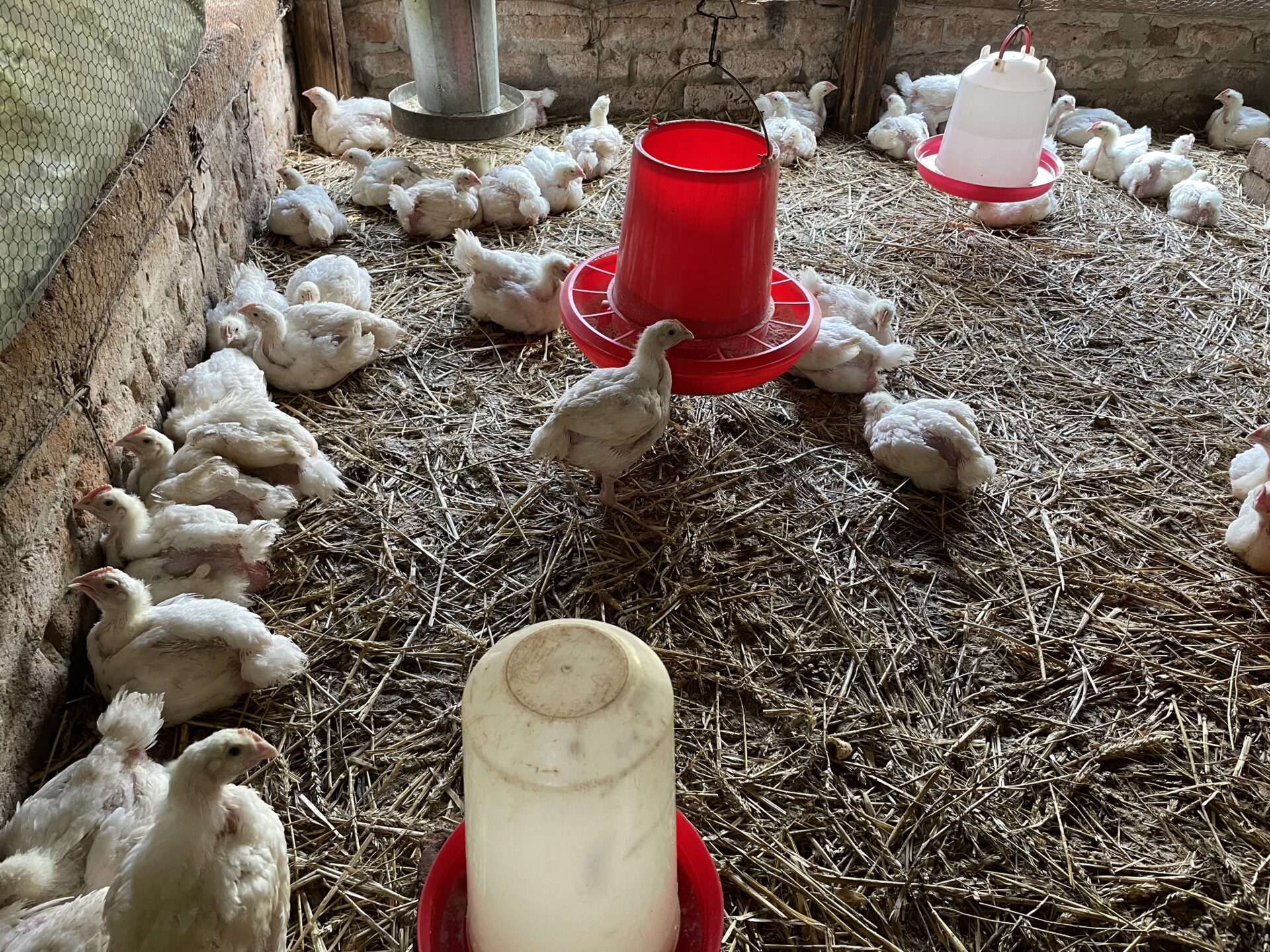Strengthening biosecurity practices in the poultry value-chain in Zimbabwe, to reduce the use of antibiotics
Context
Zimbabwe launched its first National Action Plan for AMR in 2017, after a situational analysis of AMR in human, animal, and environmental sectors in the country. Findings from the analysis showed significant and growing resistance, including indications of high levels of multidrug resistance in E. coli. Antimicrobial use (AMU) in both humans and animals was identified as the main driver for increased AMR. Antimicrobials are widely used in the production of food animals in Zimbabwe and are often available without prescription or veterinary oversight. Stakeholders have expressed concern about the perceived misuse/overuse of antibiotics in food-producing animals due to poor poultry husbandry and biosecurity and there is limited data on AMU and AMR in the livestock sector (FAO AMR/AMU Situational Analysis 2016).
The guiding principle of the NAP is a whole-of-society engagement including a One Health approach. Within the framework of the NAP, the Zimbabwe AMR Core Group (AMRCG), a multi-sectoral group is established to coordinate AMR mitigation activities and strengthen collaboration and information sharing between the human health, animal health, food safety and environmental health sectors. Since the launch, however, there has been slow implementation of the planned AMU/AMR activities mainly due to financial constraints against a background of economic pressures.
Problem
Poultry, especially broilers, is contributing significantly to food and income security of small and medium scale farmers in Zimbabwe. Due to unemployment, more people are venturing into poultry production. Lack of experience and knowledge about good poultry husbandry often causes low productivity and high mortality in the flocks, problems that the farmers attempt to curtail by using antibiotics prophylactically.
In the livestock production sectors the usage of antimicrobials remains a challenge to accurately quantify, and large data gaps persist in documenting patterns of antimicrobial use in food producing animals. Antibiotic residues have been reported in meat samples sold from backyard broilers, and in chicken samples analyzed by the Central Veterinary Laboratories in 2012, Multi-Drug Resistance (MDR) was detected in 12% of the Salmonella Enteritidis isolates. Furthermore, sales of antimicrobials from agrovet shops and mixing of antimicrobials in feeds are largely unregulated in Zimbabwe.
“The project reinforces the Government of Zimbabwe’s thrust towards strengthening food and nutrition security whilst ensuring that food is safe for consumption. The project addresses the strategic objective 3 of the ‘One Health’ AMR National Action Plan, which focuses on reducing the need for antimicrobials by improving infection prevention and control, farm practices and biosecurity, water sanitation and hygiene, and immunisation. I am grateful to ICARS for this investment and am optimistic that the project will bring transformation in the small holder poultry sector in the project district areas and will be a strong foundation for future scaling up.”
Dr Pious V Makaya, Director Department of Veterinary Technical Services, Zimbabwe
Project overview
The aim of the project is to reduce AMU in small to medium scale broiler farms by improving biosecurity and animal husbandry practices through educational initiatives. The study will be conducted in three selected districts in Zimbabwe, with small/medium scale commercial poultry farmers. The specific objectives/Work Packages (WP) are to:
- Evaluate baseline antibiotic use and biosecurity practices, and determine the antibiotic sensitivity of E. coli isolated from chickens.
- Assess the effectiveness of training small/medium scale commercial broiler farmers on operational and infrastructural biosecurity practices and good animal husbandry practices, through a Farmer Field School (FFS) approach, and evaluate its feasibility and uptake in Zimbabwe.
- Map the poultry feed supply chain and the type of antibiotic content in broiler feeds in Zimbabwe, with an aim to inform a policy on antibiotic-mixed feeds.
- Evaluate the social, economic, normative, cultural, and behavioural barriers in optimal uptake of biosecurity training directed at broiler farmers and assess the costs and benefits of implementing the interventions in the Zimbabwean context.
- Design and implement a roadmap to disseminate the learnings of the project to all the relevant stakeholder groups in the poultry value chain in Zimbabwe.
“This project brings together key stakeholders from the public and private sector with the aim to identify cost-effective and scalable solutions for small and medium scale broiler producers to reduce antimicrobial use. The interventions and capacity development on effective biosecurity and husbandry improvements are expected not only to reduce the current misuse of antimicrobials but also improve the overall poultry health, thereby improving the profitability for local chicken producers.”
Dr. Kristina Osbjer, Veterinary Advisor, ICARS
Outcomes
Optimised usage of antibiotics in small/medium scale commercial broiler farms in Zimbabwe, through improved biosecurity and good animal husbandry practices.
Improved policies and practices that utilise intervention results to sustain rational antibiotic use and adoption of biosecurity and good animal husbandry practices in small/medium scale broiler farms in Zimbabwe.
Facts
Region: Africa
Sector: Terrestrial and Aquatic Animals
Country: Zimbabwe
Type: Project
Country partners: Directorate of Veterinary Services (DVS) – Ministry of Lands, Agriculture, Water, Fisheries and Rural Development, Faculty of Veterinary Sciences – University of Zimbabwe, Veterinary Unit – Medicines Control Authority of Zimbabwe, Agricultural Research Council (ARC), The Poultry Producers Association of Zimbabwe
Timescale: 1st Mar 2023 – 1st Mar 2026
ICARS funding: 596,872.50 USD
ICARS Science Team



Resources
Share
Share this project on socials

